5 Ways Obsessive Compulsive Personality Disorder (OCPD) Hurts Your Marriage
5 Ways Obsessive Compulsive Personality Disorder (OCPD) Hurts Your Marriage
5 Ways Obsessive Compulsive Personality Disorder (OCPD) Hurt...
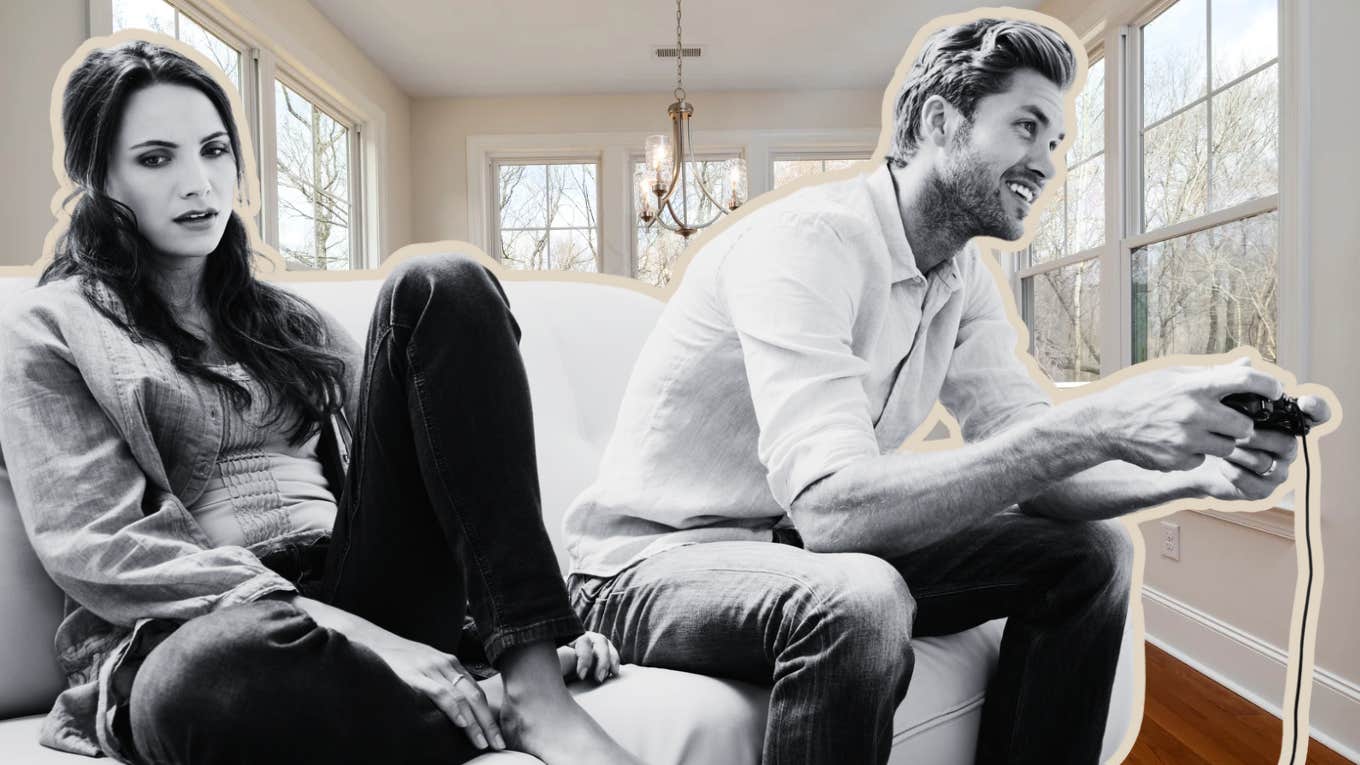
5 Ways Obsessive Compulsive Personality Disorder (OCPD) Hurts Your Marriage
5 Ways Obsessive Compulsive Personality Disorder (OCPD) Hurt...

The journey has gotten interesting in the last week, read my post The Paradox for the backstory, and I find my mind is just brimming with thought at the moment and thought begs to be written down when it occurs.
Yesterday, of my own accord, I started reading the book The Healthy Compulsive: Healing Obsessive Compulsive Personality Disorder and Taking The Wheel of the Driven Personality after discovering that this condition has been the major source of all the suffering in my life. The author, Gary Trosclair, is a licensed psychotherapist who treats people with OCPD and happens to suffer from traits of this condition as well. He is the “subject matter expert” and that carries a lot of weight with me. Who better to guide me on my journey than someone who has walked the same road?
Like many things mental illness, OCPD is a spectrum and where you fall on the spectrum dictates how mild or severe of an illness you experience. For me, taking a quick peek back at the shitshow of the last 40+ years I would say I am in the deep end of the pool. We all have to start someplace, rather it be brutal honesty than ignoring the issue like I have for the all of my life, this is rock bottom after all nowhere to go but up.
“ Trying to stay on the healthy end of the spectrum has required me to create, in an ongoing way, a map of my psyche, one that extends far beyond the territory of the conscious and controlling ego. This map includes personality parts that become more helpful as they become more conscious. My professional training as a psychotherapist and Jungian analyst has included a wide-ranging study of different perspectives that have also helped me map this inner territory, revealing still more of the sources that drive all of us, for better or worse.” The Healthy Compulsive Preface IX, Gary Trosclair
The whole preface is actually quite profound, but far too long for me to quote it, this piece however is what has sparked my imagination in a new way, in a way that I haven’t ever considered and that’s what I want to present.
I love mindmaps. Makes sense right? I’m a driven person, perfectionist dad, like order, like lists. I like lists so much I make lists of lists. Trust me it’s as bad as it sounds. A mindmap is nothing but a very detailed list. If you have never heard of a mindmap here is a simple
Example:
First you start off with a topic, for simplicity let’s say I want to mindmap making breakfast. I take a page of paper I draw a circle in the center and I write “Breakfast” in the circle. Then I start to map out everything that I would need to make breakfast. This would involve drawing other circles for the things I may need and then linking them to “Breakfast”.
Breakfast
Food -> Eggs
Cookware -> Frying Pan
You get the idea. It’s a map of a logical process and everything thats involved in that process. For complex tasks, such as working in IT for 20 years, mindmaps can be invaluable for revealing blind spots or weaknesses in a design.
So this is where is gets really interesting. What would happen if I actually tried to map out my mind like the author suggested? It’s not clear from what I have read so far if he is be literal or metaphorical, but lets just say for the sake of argument he is being literal. What would that actually look like? What would going through that process uncover? The whole idea of this is, to be cliché, is blowing my mind.
I have used the analogy of my mind as an office before, usually bombed out from all the trauma and me now with the job of going through the debris and salvaging my life. I don’t think that analogy fits anymore. I think my mind is more like a warehouse that is piled with rows and rows of boxes. Some of these boxes have never been opened, others are well worn from use and still others the rats have gotten into and torn them to shreds or they have been damaged by rot or mold. The truth is that I don’t know why some of these boxes are here, whats in them, why some are unopened, why some are damaged. I have never taken the time to look. Maybe I have been too afraid to? Now, I just want to know. It’s like I need to know. This makes sense on some level because I don’t know who I am. Who I am has to be somewhere in these boxes, the unopened ones.
Part of me is wondering if this is going to be an exercise in flying too close to the sun with waxen wings like Icarus and the other part of me is thinking that the only way I can truly understand the world is if I choose to leave Plato’s Cave. Either way I think it’s too late to turn back at this point, I am well down the rabbit hole, the bottle labeled “drink me” is empty, long since discarded, and I’m racing to have tea with a rabbit, a mouse and a crazy fellow in a fancy hat.
#Anxiety #BorderlinePersonalityDisorder #ObsessiveCompulsivePersonalityDisorder #MentalHealth

There is More talk about Self-Care than the Most Critical Key to Happiness and Great Relationships of all types——-“SELF-LOVE”.
With this in-depth look at what Self-Love looks like-for your own personal growth, I would like you to take an honest look inwards and determine if you Practice Self-Love.
If you’re not, or if you’re not doing all of the bullet points given below, don’t worry— “Each morning, we are born again. What we do today is what matters most.”
As always, let’s have a great conversation about this topic below 👇 in the comments where you can use this space for your own place in your mental wellness journey. Not your mental illness journey— I am here as a friend to guide you through to the other side as much as possible—yes, that is where I stand, and the magic only happens if you let me—so how about more group members join in for your sake.
The Mighty friends that have opened themselves up to this opportunity are telling me and showing me that they are really starting to get it, and they are taking bigger, new, determined steps in their lives.
"Self-Love" refers to a deeper internal state of accepting and valuing yourself unconditionally, while "self-care" focuses on taking practical actions to maintain your physical and mental wellbeing, like getting enough sleep, eating healthy, and engaging in activities you enjoy; essentially, self-love is the mindset that drives you to practice self-care. Self-Love is the mindset too that heals the pain and keeps you in the light, Determined to keep pushing away any darkness and to stop doubting yourself.
Key points to remember:
* Self-love:
* A feeling of intrinsic worth and acceptance, regardless of circumstances
* Becoming your own best friend - treating yourself with the same respect and understanding you would give a close friend.
* Be the love you never received.
* Includes embracing your flaws
* Foundation for setting healthy boundaries and prioritizing your needs
* learn to say no when needed and clearly explain why
* Don’t seek Anyone’s validation
* Positive self-talk: Use encouraging language to speak to yourself, focusing on your strengths and accomplishments.
* Pay attention to your thoughts and feelings, recognizing negative self-talk and actively replacing it with positive affirmations/relabel upsetting thoughts
* Say something nice to yourself in the mirror — looking into your eyes & smile at yourself & say “I love you”and your name. (Yes, I actually stop myself to do this & it’s Wonderful)
* cultivate self-compassion
* Encourage Yourself
* Talk to someone you trust who *Has The Capacity To Listen*-and, Another Big Key Here is that ***Being vulnerable - completely honest and thorough- about what you’re going through with someone else is a major form of self-love because you’re taking the time to dig deep, regardless of how uncomfortable it is, And, on top of that, you’re showing yourself that you want to work out whatever’s going on with you***
* avoid comparing yourself to others
* practice gratitude
* Seek out opportunities for growth
* Creating a safe zone all your own is an act of self-love because it gives you a designated area where you can focus on your needs and emotions instead of other people’s. The key here is creating a space that feels good and peaceful when life is neither of those things.
#MentalHealth #Mindfulness #Selflove #Selfcare #Selfharm #SuicideAttemptSurvivors #SuicidalIdeation #SuicidalThoughts #Suicide #Trauma #MajorDepressiveDisorder #PersistentDepressiveDisorder #Depression #Anxiety #GeneralizedAnxietyDisorder #Agoraphobia #BingeEatingDisorder #EatingDisorders #EatingDisorder #ChronicIllness #ChronicFatigue #ChronicFatigueSyndrome #MyalgicEncephalomyelitis #LymeDisease #ComplexPosttraumaticStressDisorder #PostTraumaticStressDisorder #PTSDSupportAndRecovery #PTSD #BipolarDisorder #BipolarDepression #AutonomicDysfunction #AuditoryProcessingDisorder #Deafness #ADHDInGirls #ADHD #AspergersSyndrome #AutismSpectrumDisorder #Addiction #CerebralPalsy #IntellectualDisability #Disability #Blindness #BorderlinePersonalityDisorder #BorderlinePersonalityDisorderBPD #Fibromyalgia #ChronicPain #Migraine #IfYouFeelHopeless #BrainInjury #MotorDisorders #MultipleSclerosis #RheumatoidArthritis #Arthritis #Grief #Loneliness #AnorexiaNervosa #Relationships #SocialAnxiety #FamilyAndFriends #Caregiving #CrohnsDisease #CysticFibrosis #AlopeciaAreata #Cancers #EhlersDanlosSyndrome #ParkinsonsDisease #PosturalOrthostaticTachycardiaSyndrome #POTS #Stroke #Diabetes #SelfharmRecovery #RareDisease #DownSyndrome #AddisonsDisease #IrritableBowelSyndromeIBS #ObsessiveCompulsiveDisorder #ObsessiveCompulsiveandRelatedDisorders #ObsessiveCompulsivePersonalityDisorder #DissociativeIdentityDisorder
So I just got done writting about the 4 choices you have to solve any problem, which is not what I was planning on writing about on this cold winter morning in South Eastern PA. It’s been an tumultuous 2025 so far and I think, even though its only 3 weeks into the year that its time to take a step back and look at the bigger picture.
Life with BPD is my most difficult struggle. Yes the depression and anxiety are significant factors as well, but its the BPD that really gets those things spinning at full tilt. Nothing says depression and anxiety like a little insecurity, self-hatred, and poor-self image and a sprinkle of abandonment issues. But lets be clear it starts with the BPD for me.
As I started this year what I was left with from 2024 was a huge crater where the latest BPD bomb dentonated and just utter disgust and dissapoinment in myself. As I have written about before this was rock bottom, no question about it. Any further down and I would be playing poker with Satan himself.
Looking back now 3 weeks in, each day has been a new experience a pain that is deeper than any I have ever known in the past. I have spent hours in sobbing, praying, cryin out to God, reading, journaling, talking to people, confessing my sins, making amends, anything and everything I can possibly do to make things right. I wish it were all that simple. It’s not. There is no simple fix to this. Sure God could heal me, but he won’t. Before anyone gets upset that I said that, let me explain. I’m a Christian, love God, do my best to follow him, fail more than I succeed but try and get back on the horse each time. I know enough about God to know that he could heal me this second, but he won’t because that’s not the way he works. In all things God works in his time, by his plan and his purpose. I may not understand it, not now, not ever, but where I am right now today is where I am supposed to be regardless of how painful it is.
I spent the last 24 hours hearing a lot about myself from someone I hurt. As things go I think that death by 1000 paper cuts sums up the experience pretty well. I don’t know about you, but growing up with parents that had nothing very kind to say to me doesn’t lend itself to hearing about the sins of the last 10 years. Even so, the ones we hurt have a right to speak and we have a responsibility to listen. It’s in the listening that I discoveredsomething. It didn’t happen right away but hours later.
It’s always been hard for me to hear about my mistakes, my shortcomings, my failures. Mom and Dad did a great job at drilling them into me at a young age to the point that failure isn’t an option. Or is it? The reason I can’t take criticism has nothing to do with the people in my life, but the people who raised me. Those people also didn’t know how to take criticism and were pretty fucking misearable, do I really want to carry on their legacy? Everyone makes mistakes its how we learn. I have been making a lot of the same mistakes again and again and again. Like the kid who needs to find out first hand if the stove is hot. Do I really need to keep doing that? No, I don’t.
My mother is 80 years old and just tried killing herself twice in the last year. I haven’t spoken to her in 30 years. I know what kind of pain I am in, to be 80 years old and wanting to die, I can’t even imagine living an entire life with that much pain and that deep. Thanks, but no thanks.
So this is the take away, the perspective if you will. Yeah, I have done some pretty horrible things as a result of my mental illness. Some I was unaware of, some fully aware of. If I never forgive myself I will stay rooted here forever and maybe in 30 years I will be trying to end my life like my mother. If I accept that these things are part of my tapestry, threads, not the whole, and that today in a new day and that I can and will do better, I don’t have to keep repeating them. I may not know how to forgive myself or love myself or even feel good about myself, but I think its time I actually started to try.
Marsha Linehan the creator of DBT once said that there are only four possible choices you have to fix any problem. Yup, just four. So lets find out what they are.
The first one is simple, when faced with a any problem you solve it. Ok, so that is the answer, but we all know its not that simple sometimes. However, the reality is still true. You do what you have to do solve the problem no ifs ands or buts. Just get er done. Logistically this can take time, effort and money depending on the problem, but the point is you make the commitment and you solve the problem.
Ok so you are faced with the problem and solving it is not feasible for whatever reason. Too much time, too much effort, too much money, not enough resources, whatever. You can’t solve it. Let’s say the problem is person you work with and you have exhausted all avenues you just have to work with them regardless of how difficult it may be. Enter option two. Get a new perspective on the problem. When life gives you lemons make lemonade. Clearly this isn’t the easiest thing to do. I worked with a guy who was insufferable. Always combative, drawing out meetings with questions that were just meant to irritate people and totally uneccesary. He was not a people person, but he was good at what he did and that was the key to leverage him as an asset to the team. Did it take extra work? Yeah it did. Was it a total pain in the ass? Yes it was. But it was worth the effort of changing perspective for the team to reach the goals it had set.
So now you have tried to solve the problem and you can’t, you looked for a new perspective and there isn’t any, whats left? Acceptance. I know…acceptance…great. Or in DBT parlance Radical Acceptance. As skills go, this has to be one of my least favorite. No one wants to accept that a situation is unresolveable, and yet sometimes that is what we are faced with. There is a secret here thought, one that’s subtle. On the flip side of the coin labeled acceptance is a side labeled resistance. It’s not the acceptance of reality that causes the pain, its the resistance, the unwillingness to accept that causes the pain. I’m pretty sure everyone has said at one point or another “This isn’t how things were supposed to turn out.” It’s this resistance to reality that creates emotional pain. You may not want to say that “this is the way that things are.” but when you do, you have just freed yourself from it and in doing so you may have opened up an avenue to actually addressing the problem by either fixing it or getting a new perspective on it. All it took was a little letting go.
The final option actually requires the least amount of effort. Do nothing and remain misearable. Sadly, in my life, I have chosen this option more times that I would care to admit and then bemoaned my miserable life.
So now you know your options when faced with any problem.
Here is a link to the full article to get the most bang for your buck: Got a Problem? The Good News Is You Only Have Four Options
Now let go solve some shit!
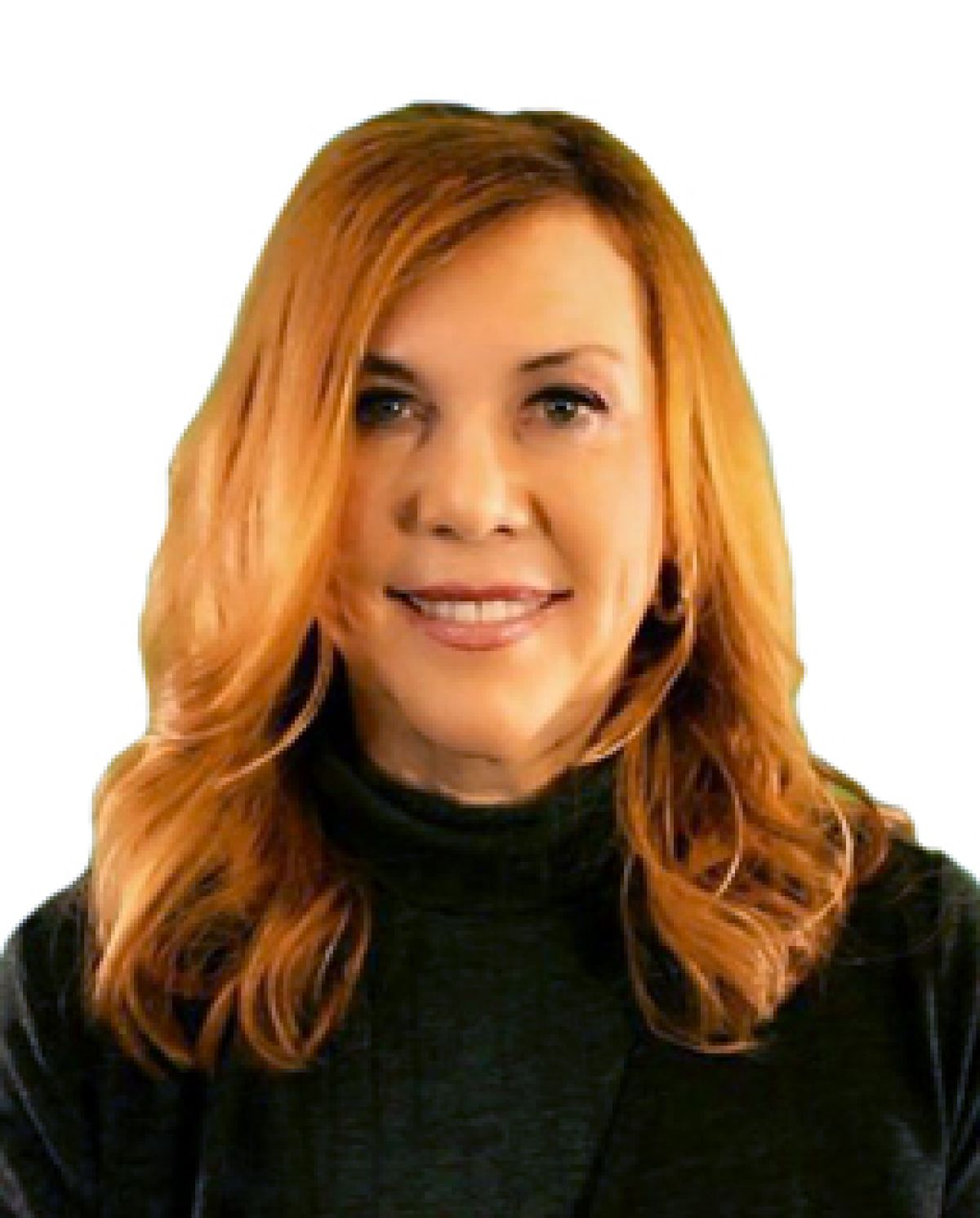
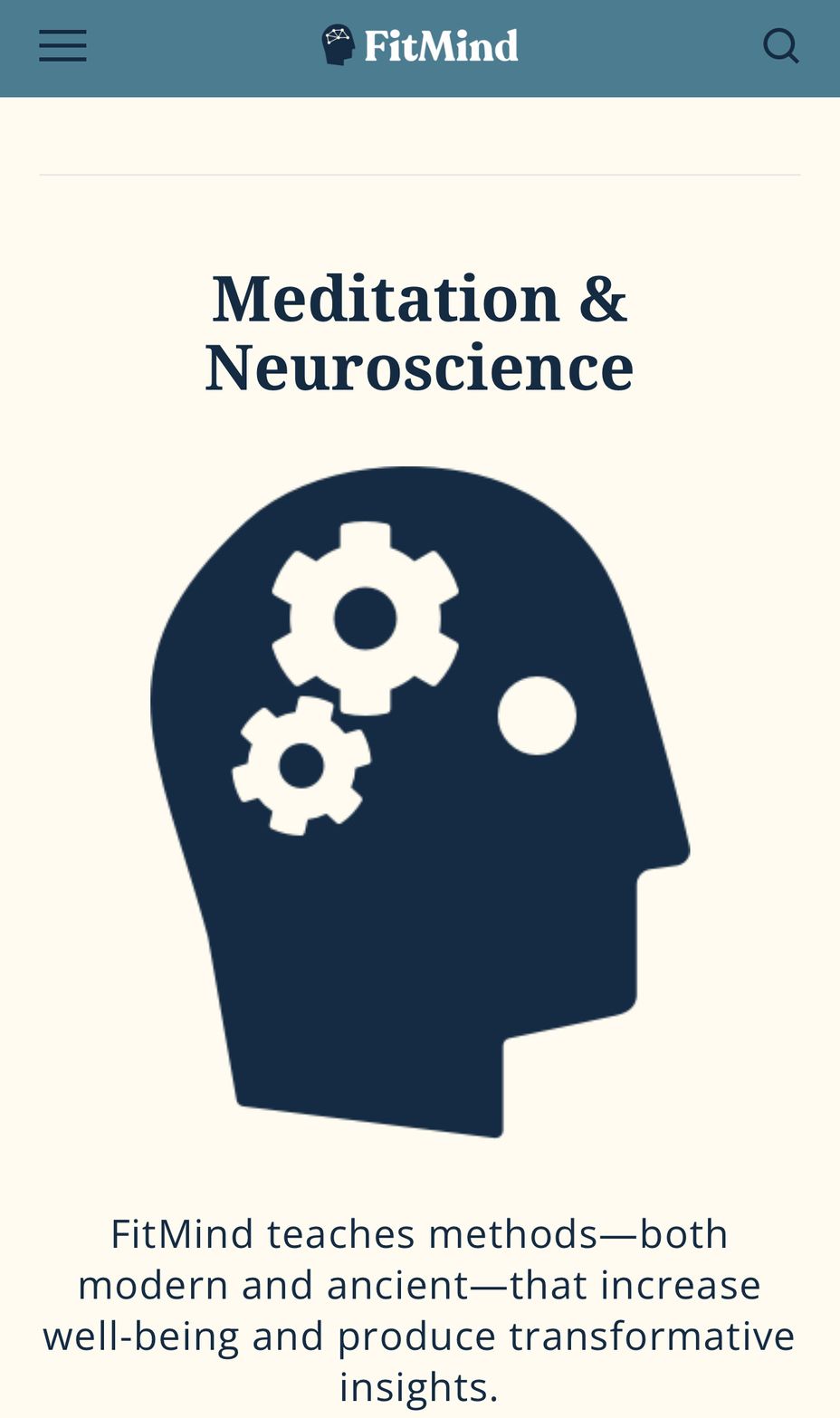
If I am not mistaken we aren’t supposed to endorse products on The Mighty and I want to be clear this isn’t a paid endorsement. When I find something of value that helps me on my road, I like to share it with as many people as possible.
FitMind is what I consider one of the best kept secrets of the mediation world. I literally stumble upon this app in App Store one day while just browsing. It’s a mediation app that is backed by neuroscience and neuroplasticity. Not only that it’s completely free. If you feel so led you can donate to the non-profit that sponsors the app and can choose to sponsor someone who can’t pay.
Every mediation is back by scientific research. The founder, Liam, is a Yale graduate that worked in private equity before becoming a monk. He hold an M.S. in Applied Neuroscience from Kings College London and advises on advanced mediation research for Harvard Medical School and Mass General Hospital. He’s a smart cookie.
You can also find all the courses on YouTube.
fitmind.org
youtube.com/@fitmindmeditation
This app by far has had the most impact on my mental wellbeing bar none. I hope it helps someone out there the way it’s helped me.
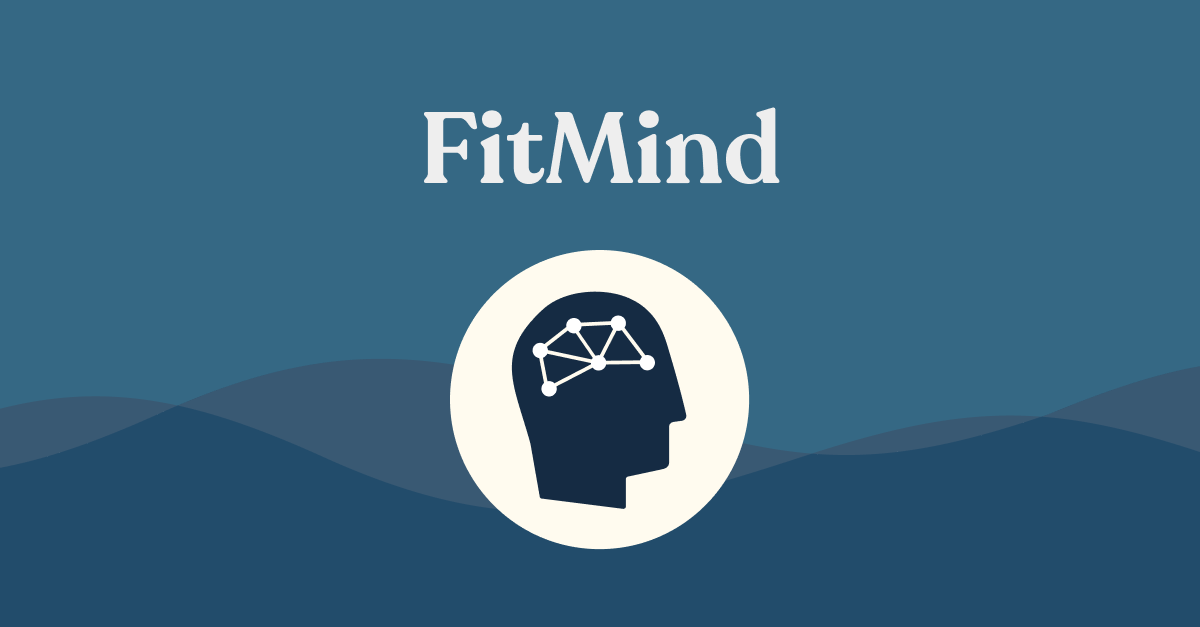
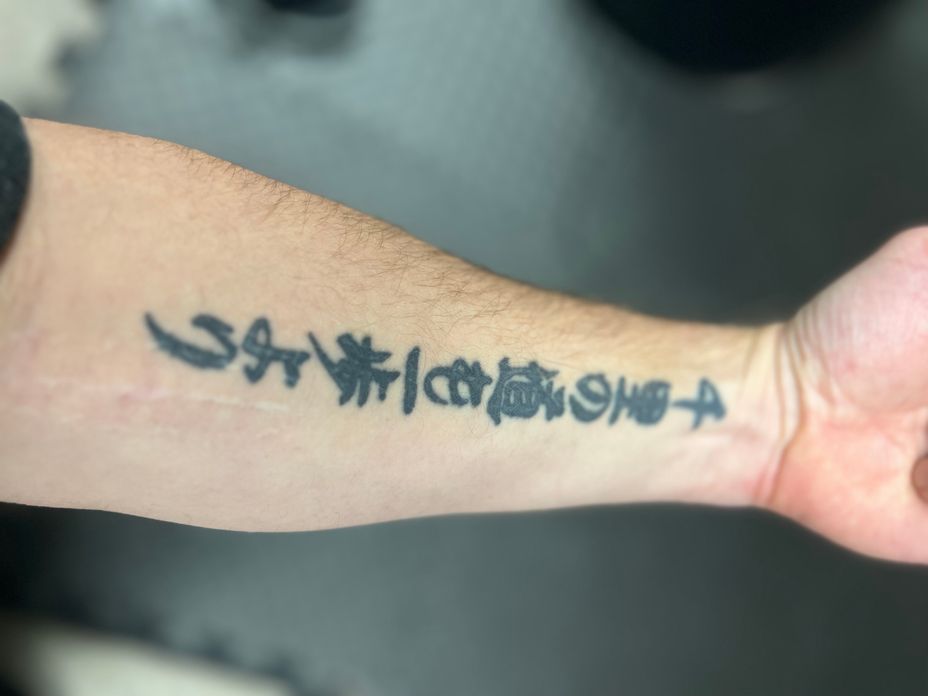
Roughly 9 years ago I got the tattoo in the picture above. “A journey of a thousand miles begins with a single step.” That’s the translation from Kanji in to English. The quotation is from Chapter 64 of the Tao Te Ching ascribed to Lao Tzu. The section that is from is as below:
A tree so big it can fill the span of a man's arms
grows from a tiny sprout.
A terrace nine stories high
rises from a shovel-full of earth.
A journey of a thousand miles
begins with a single step.
Thus, one of integral virtue
never sets about grandiose things,
yet is able to achieve great things.
These are simple observations yet incredibly profound. Everything starts from something small. Like a drop of water repeatedly hitting a rock will create a depression over time so to will the practices of healing and self-care we put in place. The key operative word is “time.”
Time
Always moving, always flowing
Never Enough, Always Too Much
The beginning of our life,
The end of our days.
Time
I wrote that in high school and its always struck me how a human construct holds so much sway over our lives. Time after all is an illusion. Something we created to bring order to chaos, but its a paradox. We either never have enough (gotta meet that deadline) or too much (why is this taking so long?) There is never just “enough” time, have you ever noticed that?
“I’m going to be late.”
“We are too early.”
“I don’t have time for that.”
“Quit wasting my time.”
Even when you arrive “right on time” like at the doctors for example, invariably you may end up having to wait. Time consumes everything about our lives because its the measure we use for everything in our lives.
Birth, childhood, adolescents, adulthood, career, marriage, children, dreams, goals, retirement, death and everything in between.
How much time do you actually make for the things that are important in your life? How much time do you make for your healing? How about personal growth? How much time do you make to do things that make you happy? How much time do you make for love? How much time do you procrastinate? (🙋) Most importantly, how much time do you devote to suffering?
The irony is that we can’t make time. It’s finite. Our time here has a fixed beginining and a fixed end. We can however waste time, and thats exactly what I have been doing with my life.
Life is precious. My life, your life, everyone’s life. How much do we really recognize that when it comes to the time we have to be happy, make an impact, do some good in this world? For too many years my mental illness has kept me in the “fog of war” where time doesn’t exist but passes anyway.
John Kabat-Zinn in his book Mindfullness Meditation spoke of a book by the poet David White called “The Heart Aroused”. David works in corporate america trying to get workers back in touch with the essence of their being. In one excerpt he had some people write about their experience and one woman wrote the following:
Ten years ago,
I turned my face for a moment,
And it became my life.
That is one of the most profoundly sad poems I have ever heard and it is the definition my life and I’m guessing many of you can relate.
Today s the day to start that thousand mile journey. Today is the day for that single step. You may not feel like taking it. Take it anyway. Dare to be courageous. When the past comes knocking, when the anxiety comes creeping along. like it does, when the insecurity, the pain, whatever it is comes calling, simply reply. “I don’t have time for you.” You can do this. We can do this.

It’s time to get good at getting rejected!
What? That sounds like a terrible idea! If you’re like millions of Americans struggling with social anxiety, then you are probably thinking that there is no way you want to get good at getting rejected. The whole point is to avoid getting reject, right?
I recently came across an inspiring NPR story about a man who decided to turn the rules of life on their head. He had been rejected by his spouse, and started isolating in his apartment and avoiding social contact all together. Like many people, he feared being rejected by others, and thus avoided social contact in order to avoid his anxiety. However, one night in his apartment he finally realized the toll this was taking on his life. He was alone, depressed, and miserable. So, he came up with a creative solution, which, spoiler alert, is exposure therapy!
This man’s idea was to come up with a game to intentionally get rejected as much as possible, in order to overcome his fear of getting rejected. If getting rejected no longer had to be something that he feared, then situations where he may get rejected no longer had to be something that he avoided.
This may sound difficult at first, and it was for this man as well. He compared overcoming his fear of rejection to a story about the fear soldiers experienced having to kill a rabid dog with a spade. Gruesome as it may be, the analogy vividly highlights just how powerful the fear of rejection feels. And yet despite the strength of that fear, it can still be overcome in exactly the way the man describes in the story.
Practice, practice, practice! One must learn that rejection is not death, as our minds may have us believe. Sure, rejection stings, but it does not have to be avoided at all costs. If one is willing to put themselves out there, or intentionally get rejected, one can learn that they can actually handle the feelings and experience of rejection when it comes, and bounce back. And, more importantly, they will now have the freedom to go after the things, people, relationships, jobs, and everything else in life that they want most. You only get one life, it’s time to make the most of it!

Hi, my name is GatheringStorm. I'm here because
#MightyTogether #Anxiety #Depression #ObsessiveCompulsivePersonalityDisorder #Psoriasis #PsoriaticArthritis #Alcoholism
When we think of the word parent, more specifically mothers, what image do you conjure up?
I envision someone who is unconditionally supportive, warm, compassionate, understanding, nurtering, curious, gives a lot of praise, is fun. empathetic, open to new ideas, flexible, have good boundaries, and values their children for who they are and not specifically for what they do. They value their chidlren’s authenticiy and personality.
mothers with OCPD are: detached, cold, rigid, strict, dismissive, abrasive, hard, critical, judgemental, find it hard ot have fun. have little to no empathy, give little praise, and are controlling/domineering. They see the child to be valued only on how successful they are or how much they achieve. The child is a carbon copy, .the next gen of whoever their parents are. Autonomy and independence of the self or self expression is frowned upon.
So often these childre think they’re not good enough and aren’t valued for who they are. The children of said parents often feel like a burden on their parents. They are often subtly told as chidlren, to shut up and go play in the corner, or to go away because ‘mommy’s busy’.
These adult children are then compelled to subconsciously prove theselves in life: i pursuing top level positions in careers ie. CEO, becoming famous in some way and becoming high earners. *Often at the cost to health, relationships, mental welll being, and over-all life satisfaction
The cause of OCPD is a mix of gentics and traumatic environments that the person with OCPD grew up in.
Children who have OCPD parents can relate to these ten things
1. dinner table talk is all about work, work work. How much work they have t odo. What work plans they have. What their coworkers are doing at work. How said coworkers aren’t pulling their weight. Politics, the weather, the eocnomy, technology, and other big mind topics are good and fine too.
But Art? celebrities? pop culture? fashion? creatiivty/imagination? Humanitarian efforts/ eco-consious ideas? that’s so boring.
2. Vacation is like the above. Work may be brought on vacation. Work related stuff like workshops or conferecnes may be part of the vacation journey itsefl. Work mau be the pinnacle of car ride conversaitons. The worries aren’t about flat tires or the price of gas so much as the back to work stress. They worry how much work they’re missing out on, isntead of focussing on enjoying themselves and the people. they’re with.
3.. Rigid ways of doing tasks (things have to be done with certain steps, things have to be folded a certain way, etc). The end goal of just cleaning up or putting things away is lost in the process. They do not like to delegate tasks to others, because they want it done the way they do it. Often they over burden theselves by doing this!
4. hoarding stuff/stocking up on stuff like it’s the year 2000 and everyone thinks everything’s going to shut down completely.
But nothing did and now they have all this stuff and spent all that hard earned money on stuff that will be kept in storage or thrown out…
5.They ‘love’ working
6. Cheap presents for brithday/Christmas. If you want an expensive item, they’ll get you something cheaper. or something you didn’t want If you’re a little older and want a gift card to a store you freqeunt, they’ll give you cash. It’s never what you exactly want, it’s always what they are willing to give.
7. Money is treated like a sacrilige. There’s hardly any quality indulgence. Goods and services are bought for the cheapest price possible. Often
8. Resting or taking time for self care is seen as being ‘lazy’ or ‘unproductive’. People with OCPD view others who don’t do as mcuh as they do in this way.
9. They’re always stressed/anxious because they’re doing so much at once. Children feel like they’re walking on eggshells around these parents. They re waiitng for the other shoe to drop. ‘Just one more thing I have to do!’ is often the motto for these parents. Often these chidlren grow up to have chornic illnesses because their nervous systems are on high alert, jsut waiting or the boiler to break or the car to break down and mom and dad to over react/rage.
10. They’re always unsatfied with the status qou. You have to go higher, aim bigger, do more. There’s no room to be ‘average’. Perfectionism sets in and these adult children are trained to never be satsified with their life. They go to extremes, often times resulting in burn out or chronic illnesses.